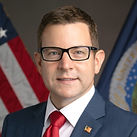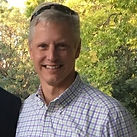
Plenary Program
AFCC Conference Plenary Program
Plenary Program Information
There will be three plenaries with featured keynote opinion and thought leaders as they discuss the state of play for the areas of growth opportunities. Attendees will learn about the necessary factors to successful commercialization and decarbonization in sustainable aviation fuels, alternative fuels, renewable chemicals (includes bioplastics), biomaterials, food ingredients and additives, flavors and fragrances, alternative proteins, and regenerative agriculture.
The plenaries at the conference will include diverse and dynamic speakers, a broad range of content from keynotes to panel discussions and innovation for a sustainable future. All other sessions will stop for the plenaries.
Lunch Plenary Session, Monday, November 17, 11:45 to 1:15 PM (ET) - RiverView Ballroom
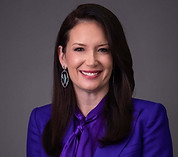
Introductory Remarks, Honorable Brooke Rollins, USDA Secretary, (Invited)
Trends Shaping Advancing Bioindustrial Manufacturing
Sponsored by:
Bioindustrial manufacturing continues to be challenged to reach its full potential. Building a resilient supply chain and market adoption, bioindustrial manufacturers are adapting to geopolitical tensions and potential tariffs with strategies like reshoring and automation. It requires additional support at various levels and may need as much as hundreds of billions of dollars in capital. There is an opportunity to grow the bioindustrial manufacturing sector, reap the economic and societal benefits from biosolutions. Many innovative companies have failed because they did not successfully address the challenge of integrating backwards into the agricultural value chains to secure raw materials at the required scale and cost. The incumbent petrochemical value chains are highly integrated and at huge scale. Therefore, it is apparent that for renewable chemicals and biofuels to win, we need a holistic approach that manages renewable supply chain challenges cost-effectively and at the same time have market adoption. The leaders in this panel will focus on pathways to succeed in building a resilient bioindustrial manufacturing with strategic partnerships and public-private partnerships.
Breakfast Plenary Session, Tuesday, November 18, 8:00 AM to 9:30 AM (ET) - RiverView Ballroom

Introductory Remarks, Honorable Senator Todd Young (R, IN), (Invited)
Leadership in Modern Biomanufacturing Innovation Through National Security Challenges
Sponsor:
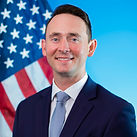
Moderator: William Mounfield, Senior Program Director, Biological Technologies Office, Defense Advanced Research Projects Agency (DARPA)
Speakers:





The leaders in this panel will discuss their visions on advancing biomanufacturing with existing tools and developing new ones with the aid of AI, and having investments in technologies, stronger public private partnerships, partnerships providing stable supply chains, creating resilient value chains and pathways to biomanufacturing through biosolutions. In addition, the leaders in this panel will discuss the current challenges impeding U.S, which was once a leader without competitive threat may lose its competitive edge to other nations unless discoveries from lab to scale is done rapidly.
Lunch Plenary Session, Tuesday, November 18, 11:45 to 1:15 PM (ET) - RiverView Ballroom
Sustainable Synthetic Aviation Fuel (SAF) at Scale
Sponsored By:

Introductory Remarks, Michael Berube, Deputy Assistant Secretary, Sustainable Transportation, U.S. Department of Energy (DOE)

Moderator: Valerie Reed, Director of Bioenergy, U.S. Department of Energy (DOE)
Speakers:


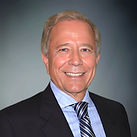


Sustainable synthetic aviation fuel (SAF) is still a nascent segment of the biobased economy, but it continues to build strength through business partnerships, increased number of off-take agreements, federal legislative tax incentive agenda through U.S. Reconciliation Bill, ReFuelEU Aviation Regulation has set a minimum supply mandate for SAF in Europe, starting with 2% in 2025 and increasing to 70% in 2050. There continues to be challenges – assurance for bankability, feedstock cost, lack of development capital, and ramping up volume. Despite the challenges, there is market demand and business deals are being crafted. The leaders in this panel will disclose their business strategies and decarbonization methodologies for SAF at Scale.



